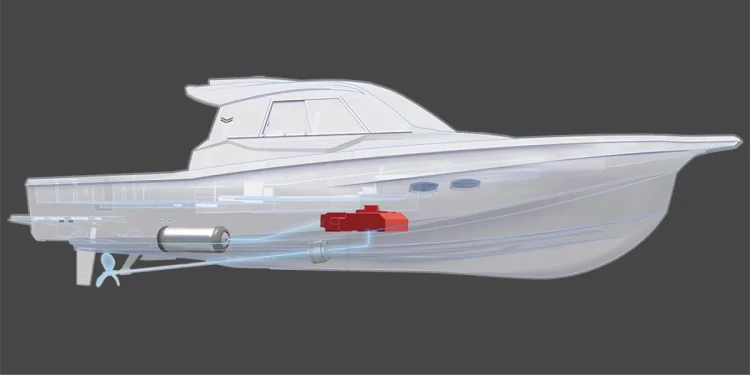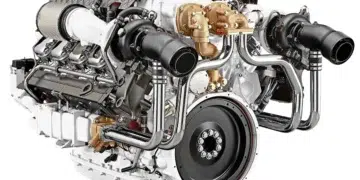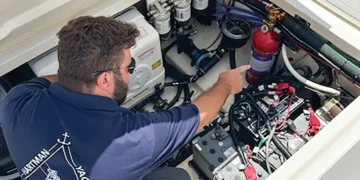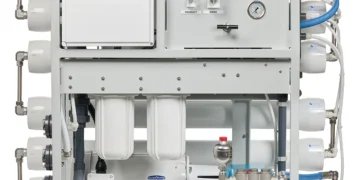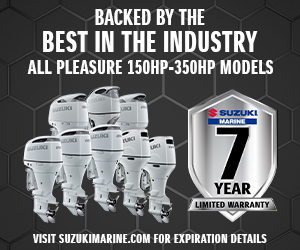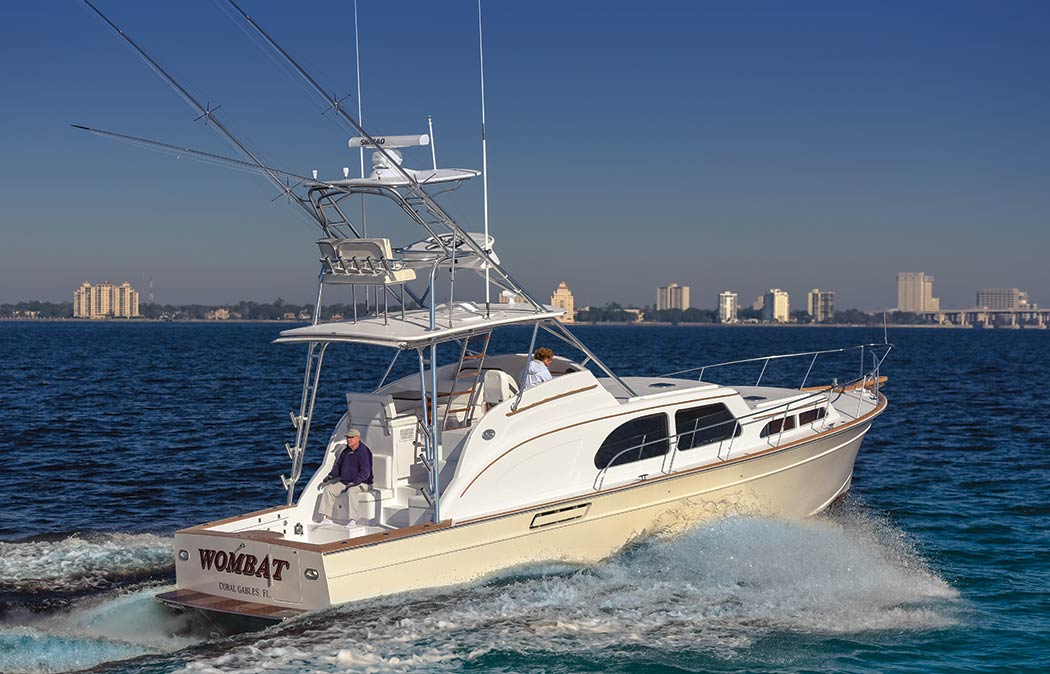Innovative hydrogen power outboard engines
Hydrogen has long been used to propel astronauts into space. Now, researchers are hoping the fuel will eventually deliver a carbon-free day on the water for boaters by creating hydrogen outboard engines.
With billions being spent on hydrogen research and development, there is some promising technology making its way to the recreational boating market.
Yamaha Marine introduced a prototype hydrogen outboard at the 2024 Miami International Boat Show, and Yanmar is developing a hydrogen-fueled, four-stroke, high-speed engine that will begin testing in Japan later this year.
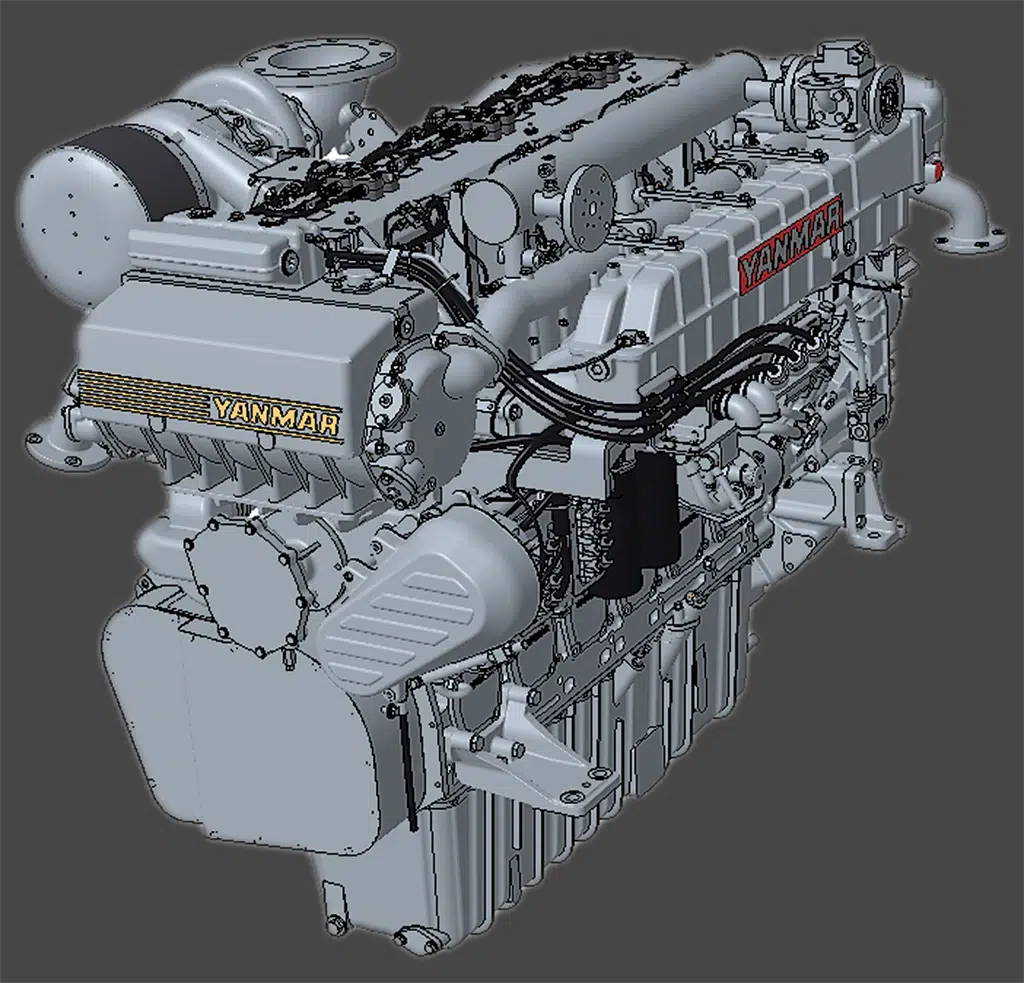
It’s an alternative fuel arms race, and if all goes to plan, consumers will soon have a reliable choice of hydrogen, batteries, or a hybrid engine to power their boat. Companies such as Yamaha, which has pledged to achieve carbon neutrality by 2050, are taking a multifaceted approach to reach the goal.
“We’re doing that for a lot of reasons,” says Brad Massey, Yamaha’s corporate communications manager. Some technologies, such as hydrogen, still need some development, and that’s what we’re doing. We’re trying to figure out the viability of it as an alternative fuel, and at the same time, understanding that there’s not a one-size-fits-all solution to achieving carbon neutrality.”
Subscribe Here For Weekly Updates
Researchers believe hydrogen technology has the most potential to achieve clean-energy goals because it’s the most abundant element in the universe. When hydrogen generates electricity, it emits heat and water vapor. The billion-dollar question is how to harness the power safely for recreational boaters.
If you remember from high school chemistry class, hydrogen can be extremely volatile. While the Hindenburg disaster and Space Shuttle Challenger are popular examples of hydrogen power going rogue, researchers know that when harnessed correctly, it has unlimited potential for a low-carbon future.
“The major challenge is the implementation of countermeasures for abnormal combustion and ensuring safety,” says Saito Konatsu of Yanmar Holdings, which has started testing a hydrogen-fueled engine for coastal ships. “Another challenge is that hydrogen requires larger volume for storage than other fuels.”
Hydrogen is stored physically as either a gas or a liquid in high-pressure tanks. Hydrogen fuel cells operate like a battery where hydrogen reacts with oxygen across an electrochemical cell to produce electricity, water, and some heat. The engine operates similar to its gasoline counterpart, where a mixture of air and hydrogen is ignited by a pilot fuel injection. If hydrogen isn’t available, the engine can be operated by diesel fuel alone, added Konatsu.
Hydrogen fuel cells aren’t new technology; fuel cells are used in public transportation and to supply electricity to spacecraft. But when it comes to the recreational boating market, safety and affordability are significant challenges engine builders must overcome. Not to mention, it may be years before the local marina sells hydrogen fuel.
Yamaha’s Massey said they’ve been working with industry associations and regulators to create infrastructure and manufacturing standards. “Safety is a paramount issue, and we want to make sure all that is done correctly,” he says. “We are working with a lot of different organizations to answer that question.”
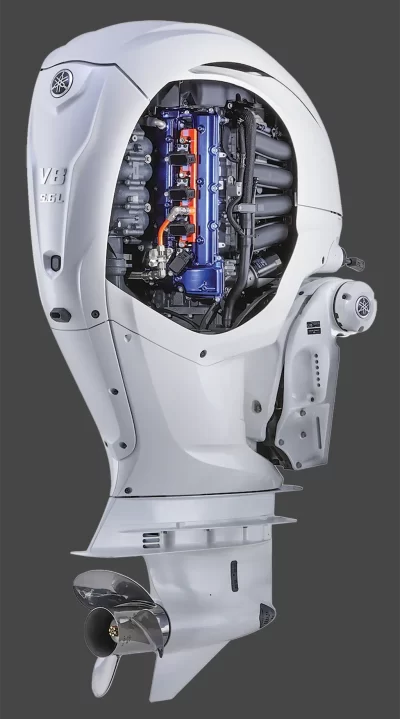
Yamaha, which has invested significantly in clean-energy research, has partnered with Japanese counterpart Toyota to develop hydrogen technology. One of Yamaha’s projects includes developing a 5.0-liter V8 hydrogen combustion automotive engine for Toyota, which has the potential to shake up the electrical vehicle market.
For the America’s Cup later this year in Barcelona, Spain, Toyota is developing the hydrogen-powered hydrofoil chase boats. The catamarans must maintain at least 55 mph to stay up with the foiling sailboats in the America’s Cup.
While hydrogen carries more energy per weight and volume than lithium batteries, critics, including Tesla’s Elon Musk, argue that battery technology when combined with wind and solar is cleaner than hydrogen fuel over the long run for the environment.
Because not much pure hydrogen exists in nature, it has to be manufactured, and the process creates a lot of greenhouse gases. The process involves taking natural gas and pressurized steam to strip the hydrogen molecules, which critics dub “grey hydrogen.” Hydrogen can also be made using electrolysis, which doesn’t produce greenhouse gases, but makes up less than two percent of the commercially available hydrogen.
“The major benefit of a hydrogen-fueled engine is that it has zero or few emissions if green hydrogen is used as the fuel,” says Konatsu.
Even with those environmental challenges, hydrogen fuel still falls short of a gasoline-powered engine when it comes to energy produced. Ken Portin, general manager of sustainable fuels and decarbonization at the Finnish company Wärtsilä, says the same equivalent energy content requires a tank volume almost eight times larger than that for a marine gas engine. “It’s a large hurdle but not insurmountable,” he adds.
The prototype outboard Yamaha showed at the Miami International Boat Show is likely a few years from the market, but the potential already has the marine industry excited. Environmental regulations are only going to get tougher as government officials work to lower greenhouse gases.
“(Hydrogen) has a very long history and use in both the automotive and space programs, and hydrogen cars have been around for a while,” says Massey. “So, is it a viable fuel? Yes, it is. How does that apply to the marine industry? That’s what we’re trying to find out.”
-by Gregg Mansfield


